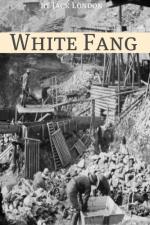|
This section contains 137 words (approx. 1 page at 400 words per page) |

|
In White Fang London's purpose was more clearly didactic, and because his environmental determinism was in the front of his mind as he wrote this companion piece to The Call of the Wild, the novel is written in a more straightforward, naturalistic manner than the visionary tale of Buck's mythical metamorphosis. To this extent, White Fang exemplifies London's belief that matter should take precedence over form. This didacticism results in some strained dialogue, and characters that exist as types or symbols rather than individuals.
To represent the point of view of White Fang, London uses an extremely simplified prose; short declarative sentences and a restricted vocabulary that seem almost childish at times. This plain style, however, effectively approximates White Fang's perspective, and it helps to communicate the difficulty of his transition from wild to civilized.
|
This section contains 137 words (approx. 1 page at 400 words per page) |

|




